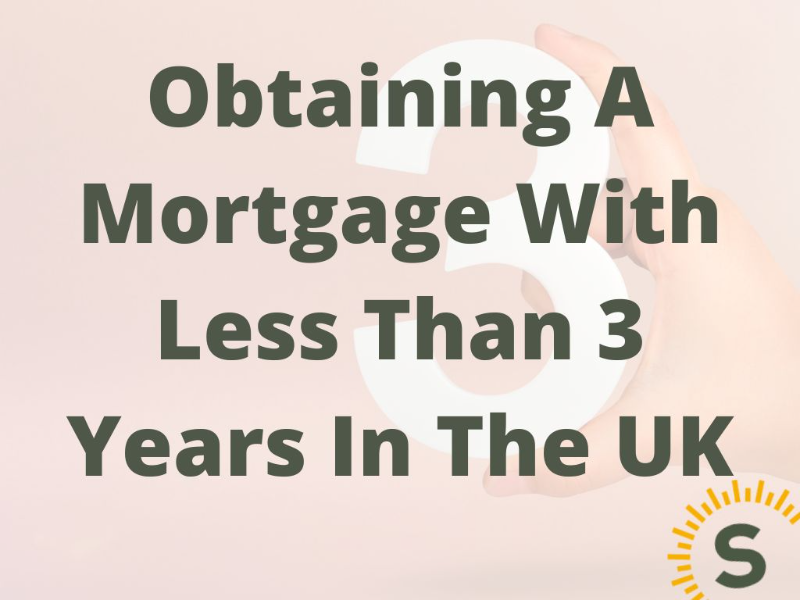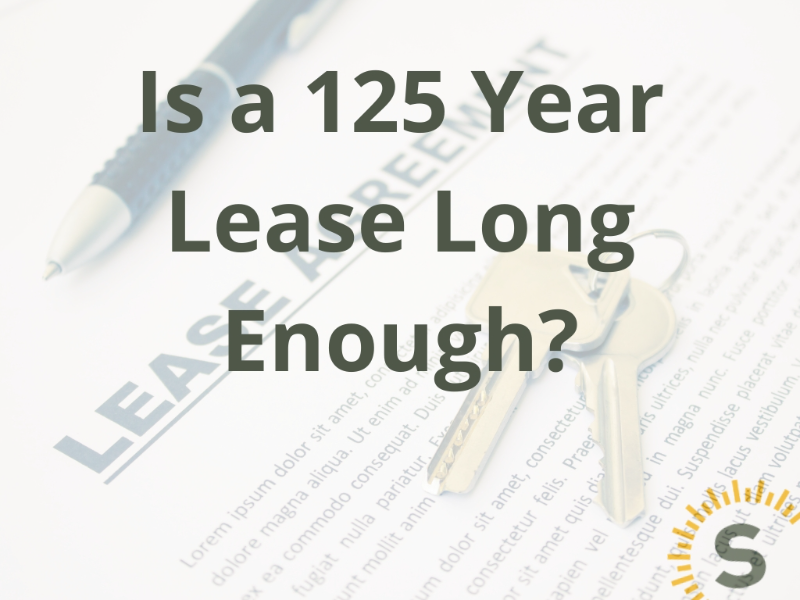
Obtaining a mortgage with less than 3 years in the UK is a challenging feat for many individuals, particularly non-UK citizens or those with limited address history. However, it is not impossible.
In this insight, we will provide you with essential information to help you navigate the mortgage application process and increase your chances of securing a mortgage, even if you haven't lived in the UK for a full three years.
Applying for a mortgage with less than 3 years requires planning and research. For individuals who have lived in the UK for less than three years, the mortgage application process can be particularly challenging.
To be eligible for a UK mortgage, the general requirement is to have a three-year residency in the UK. This duration establishes a standard address history, crucial for establishing a reliable and traceable credit record.
Most mortgage lenders decline applicants who don't meet this 3-year requirement. However, there are mortgage providers that consider applications with 1-2 years of address history or don't specify a minimum amount, assessing applications based on other factors.
There are also some lenders may make exceptions and lend to borrowers with less than 2-3 years of UK address history if the applicant is a British expat returning to the UK or if they have a strong credit score.
Non-UK citizens face a unique set of challenges when applying for a mortgage. Specialist mortgages cater to non-UK citizens, offering expert advice on mortgage finance over £100,000, assistance with complex income scenarios, and access to banks that provide non-UK citizen mortgage solutions. These specialist mortgages are available for both short and long-term lending options, ensuring professional service throughout the application process.
High street banks in the UK usually restrict mortgages to those with permanent residency who have lived and worked in the UK for at least three years. However, if you have lived in the UK for less than three years, you may still qualify for a mortgage from a private lender.
The exact rules for foreign nationals applying for a mortgage in the UK vary depending on whether you are from the EU or a country outside the EU.
One other element to consider if you're new to the UK is building your credit score. Having a strong credit score can help you when applying for a mortgage.
EU citizens typically have a traceable credit history, making it easier for them to obtain a mortgage. To apply for a standard UK mortgage as an EU citizen, you should:
For non-EU citizens, it may be more difficult to obtain a mortgage due to a lack of traceable credit history. However, this does not mean it's impossible. To qualify for a standard UK mortgage as a non-EU citizen, you should:
If you are in the UK on a work permit, you may still be able to get a mortgage as long as you meet the other standard requirements. Some lenders prefer applicants to have at least two years remaining on their work permit, while others are more flexible.
The amount you can borrow through a mortgage as a non-UK citizen mainly depends on your income. Typically, you can borrow up to 4.5 times your annual income in the UK. However, this ratio may be higher depending on the lender you choose and the type of income you earn.
The mortgage application process may become more complicated if:
If you are a British expat or foreign national living outside the UK, it is advisable to use a specialist mortgage broker to ensure you find the right financial solution. These brokers have extensive market knowledge and can deliver bespoke terms based on your requirements.
Visa holders can also obtain a UK mortgage, although it may be more challenging. Lenders assess mortgage applications for visa holders based on factors such as residency, time left on the visa, and deposit size. A larger deposit may be required for foreign nationals, as they are often considered higher risk.
No two mortgage applications are the same, and other eligibility criteria will be reviewed based on the type of visa held by the applicant.
Preparing for a mortgage application involves gathering necessary documents. These may include utility bills, proof of received benefits, P60 form, recent payslips, identification (passport or driving licence), bank statements for the past three to six months, and two to three years of accounts for self-employed individuals. Accuracy is vital, ensuring the information matches the documents provided. Additionally, details about the property, estate agent, and solicitor should be provided.
Different lenders may require additional paperwork, so it's best to consult with the lender or an independent mortgage adviser for specific requirements. Hard copies or certified copies of documents are typically preferred over online printouts for bank statements and utility bills.
Securing a mortgage with less than 3 years in the UK is indeed challenging, but not impossible. With the right guidance, research, and understanding of the requirements, you can increase your chances of obtaining a mortgage that suits your unique situation. It's essential to consult with a mortgage adviser to ensure you find the best possible mortgage deal based on your individual circumstances. To get started, complete the Sunny Fact Find for Mortgage Advice.

Stuart is an expert in Property, Money, Banking & Finance, having worked in retail and investment banking for 10+ years before founding Sunny Avenue. Stuart has spent his career studying finance. He holds qualifications in financial studies, mortgage advice & practice, banking operations, dealing & financial markets, derivatives, securities & investments.
 No minimum
No minimum  Newcastle-under-Lyme, Staffordshire
Newcastle-under-Lyme, Staffordshire Free Consultations
Free Consultations
 No minimum
No minimum  Free Consultations
Free Consultations
 No minimum
No minimum  No obligation consultation
No obligation consultation
 No minimum
No minimum  No obligation consultation
No obligation consultation
 No minimum
No minimum  Free Consultations
Free Consultations
 No minimum
No minimum  No obligation consultation
No obligation consultation
 No minimum
No minimum  No obligation consultation
No obligation consultation
 No minimum
No minimum  Free Consultations
Free Consultations
 No minimum
No minimum  Coatbridge, Lanarkshire
Coatbridge, Lanarkshire Initial or Ongoing Consultation Fees
Initial or Ongoing Consultation Fees
 No minimum
No minimum  Initial or Ongoing Consultation Fees
Initial or Ongoing Consultation Fees
 £21,000 +
£21,000 +  Initial fee free consultation
Initial fee free consultation
 London, Greater London
London, Greater London No obligation consultation
No obligation consultation
 No minimum
No minimum  No obligation consultation
No obligation consultation
 No minimum
No minimum  Initial fee free consultation
Initial fee free consultation
 No minimum
No minimum  No obligation consultation
No obligation consultation
 No minimum
No minimum  No obligation consultation
No obligation consultation
 No minimum
No minimum  Initial fee free consultation
Initial fee free consultation
 No minimum
No minimum  Initial or Ongoing Consultation Fees
Initial or Ongoing Consultation Fees
 £51,000+
£51,000+  Free Consultations
Free Consultations
 No minimum
No minimum  No obligation consultation
No obligation consultation
 No minimum
No minimum  Initial fee free consultation
Initial fee free consultation
 £101,000+
£101,000+  Bishop's Stortford, Hertfordshire
Bishop's Stortford, Hertfordshire No obligation consultation
No obligation consultation
 No minimum
No minimum  Derry / Londonderry, County Derry / Londonderry
Derry / Londonderry, County Derry / Londonderry Free Consultations
Free Consultations
 No minimum
No minimum  Stockton-on-Tees, County Durham
Stockton-on-Tees, County Durham Free Consultations
Free Consultations
 No minimum
No minimum  Initial fee free consultation
Initial fee free consultation





Our website offers information about financial products such as investing, savings, equity release, mortgages, and insurance. None of the information on Sunny Avenue constitutes personal advice. Sunny Avenue does not offer any of these services directly and we only act as a directory service to connect you to the experts. If you require further information to proceed you will need to request advice, for example from the financial advisers listed. If you decide to invest, read the important investment notes provided first, decide how to proceed on your own basis, and remember that investments can go up and down in value, so you could get back less than you put in.
Think carefully before securing debts against your home. A mortgage is a loan secured on your home, which you could lose if you do not keep up your mortgage payments. Check that any mortgage will meet your needs if you want to move or sell your home or you want your family to inherit it. If you are in any doubt, seek independent advice.